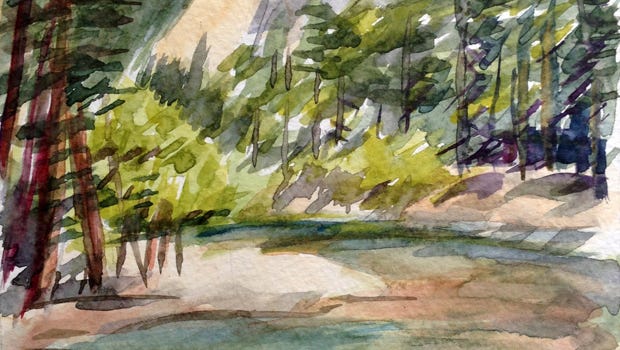To be understood as to understand,
I struggle with the need to be understood. Is this at all familiar? The problem is, during an encounter with a loved one, my focus on being understood closes me off from their perspective, their needs. The lather, rinse, repeat of such arguments can degenerate into self-centered stridency.
It strikes me that one of St. Francis’ overarching messages in this prayer is that we always have the choice between turning inward and reaching outward, between isolation and connection. Victimhood and generosity. It’s no accident that connection feels better. Sometimes, though, that good feeling is no match for years of habit. I wonder, what pushes me into this homemade leghold trap?
My need to be understood isn’t sourced in healthy self-care. It’s not the same as the advice to put on my oxygen mask before assisting another with theirs. I wonder if the feeling of not being understood reflects a failure to understand myself. A lack of self-care, a paucity inner attention. A neglect of self-love.
It’s helpful to spend time each morning with my journal, where I can ask any question and bear honest, non-judgmental witness to my deepest longings. On these pages, I know I’m not alone. I always feel loved and understood. Come to that, the same reassurance is available in the forest or anywhere outdoors, when I take time to be still and listen.
A while back, my husband and I took a parenting class to prepare for our son’s looming teenage years (as if preparing for such a cataclysm is possible). It was a well-thought-out program blending different strands of psychological research, the upshot of which was to help a child develop robust social-emotional skills. In any given situation, we learned, there are steps to being an effective social-emotional mentor for our child.
The first step is empathy, which builds understanding and trust. It sounds so simple, and it is, except when I’m emotionally triggered. The trainer showed us brain research that if you can name an emotion while you’re feeling it, that’s a first step to understanding it—which prevents being hijacked and controlled by it. That was promising. (Why didn’t I learn it ages ago?)
She told us that anything we say during an encounter with our son will be far more effective if we put empathy and understanding first. Though being that intentional sounded a bit manipulative, when practiced from love and a genuine desire to connect, it’s not manipulative; it’s magical. From a lifetime of longing to be understood, I know how wonderful it feels when someone takes the time to understand me. It’s like they’re reaching across a lonely ravine that I stepped over myself. They don’t make a big deal of shaming my self-inflicted isolation. They just invite me to return.
In my childhood home, anxiety, frustration, sadness and anger were toxic. Anyone who wallowed in them was considered self-centered. The message was not subtle: keep your shit to yourself; if you inflict it on others, you’ll be sent to your room. With that conditioning, to feel and name such powerful (dark) emotions requires no small measure of courage. The simple awareness that such equanimity is possible opened a door to great hope.
Today, when opportunities to practice understanding arise, instead of resisting and turning inward, I can take a breath, name the emotion, and give the gift of empathy to whoever I encounter: myself, a loved one, friend, stranger. Understanding is a precious gift that returns priceless rewards in the giving.
The previous line of the prayer, O Divine Master, grant that I may not so much seek / To be consoled as to console, is here.
Start at the beginning of the series:
Thanks for being here on this journey through St. Francis’ prayer. We’ll pick up with the next verse on Saturday. Thursday brings a Reciprocity interview with the wonderful nature writer,
who writes the Mostly Water Substack.If you enjoyed this post, a lovely ❤️ keeps me going. Another way to show love is to share this post with others by restacking it on Notes, via the Substack app. Thanks!







A lovely reminder, Julie, as I am facing a difficult situation with my own son. Empathy first shows my love and respect for his feelings, even if we disagree about what is to come next. Thank you for sharing this.
Wow Julie! This is so beautiful❤️🙏🕊️